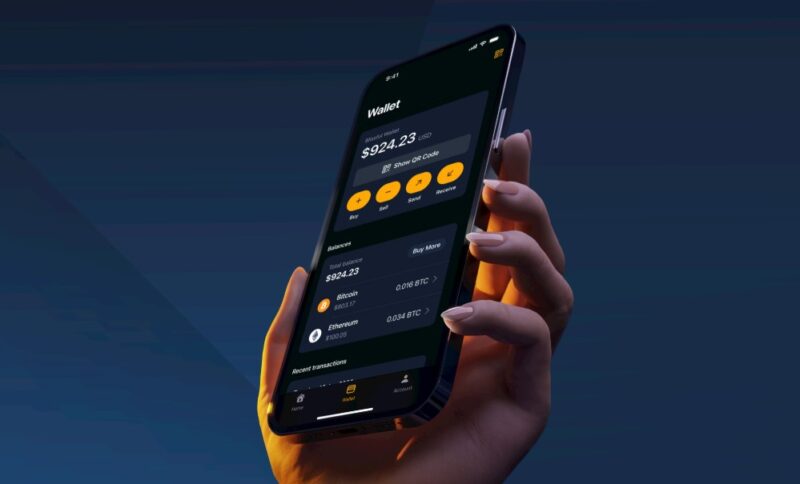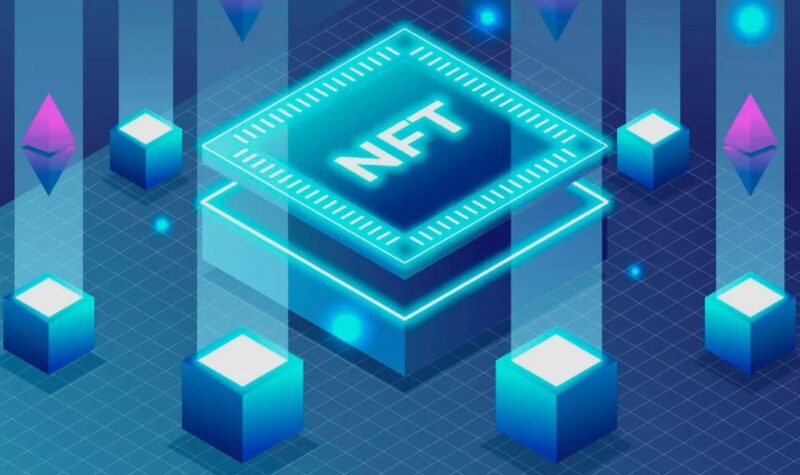The emergence of non-fungible tokens (NFTs) has transformed the digital landscape, providing new opportunities for artists, collectors, and investors. Central to this growing market is the cryptocurrency wallet, an essential tool that enables the buying, selling, and storing of NFTs.
For anyone interested in exploring this exciting new frontier, understanding the role of cryptocurrency wallets in the NFT market is crucial.
Understanding Cryptocurrency Wallets
Cryptocurrency wallet solutions are designed to help users store and manage their digital assets, including cryptocurrencies like Bitcoin and Ethereum and non-fungible tokens (NFTs). Unlike traditional physical wallets that hold cash and coins, cryptocurrency wallets don’t contain any tangible currency. Instead, they securely store the private and public keys necessary for accessing and controlling one’s digital assets on the blockchain, the underlying technology that powers these currencies.
Several types of cryptocurrency wallets are available, each offering varying levels of security, usability, and convenience. The right choice often hinges on individual needs and preferences. For instance, software wallets, which can be accessed via computer or mobile applications, are particularly favored by NFT enthusiasts. They provide a user-friendly interface, allowing quick and easy access to manage and trade digital assets. This accessibility can be crucial for those actively engaging in the NFT marketplace.
On the other hand, for users with substantial investments in cryptocurrencies, the enhanced security offered by hardware wallets—a physical device designed to store private keys offline securely—might be worth the compromise in convenience. Hardware wallets protect digital assets from various online threats and hacking attempts, ensuring users’ investments remain safe even in a volatile digital landscape. Ultimately, the decision between different types of wallets will depend on how one values ease of use versus the level of security needed for their digital assets.

The Role of Cryptocurrency Wallets in the NFT Market
Cryptocurrency wallets are vital in the growing non-fungible tokens (NFTs) market. These digital wallets are essential for storing cryptocurrencies and managing, buying, and selling NFTs.
Facilitating Transactions
Cryptocurrency wallets play a pivotal role in facilitating transactions within the NFT market. When a user purchases an NFT, the transaction is recorded on the blockchain, and the NFT is transferred to the buyer’s wallet. This process requires using a cryptocurrency wallet to store the NFT and manage the transaction securely.
Wallets also enable users to sell their NFTs by providing a secure platform for listing and transferring digital assets. By connecting their wallet to an NFT marketplace, users can easily list their NFTs for sale, set prices, and manage offers from potential buyers.
Moreover, wallets support smart contracts, which are self-executing contracts with the terms of the agreement directly written into code. Smart contracts automate the buying and selling process, ensuring that transactions are secure, transparent, and efficient.
Ensuring Security
Security is a paramount concern in the NFT market, and cryptocurrency wallets play a critical role in safeguarding digital assets. Wallets use advanced cryptographic techniques to protect private keys, ensuring that only the wallet owner can access and manage their NFTs.
Hardware wallets, in particular, offer enhanced security by storing keys offline, away from potential online threats. This makes them an ideal choice for users with valuable NFT collections. Additionally, many wallets offer features such as two-factor authentication and biometric security, further enhancing the protection of digital assets.
Users must also be vigilant in protecting their wallet information, as losing access to a wallet can permanently result in the loss of NFTs. Regularly backing up wallet data and using secure passwords are essential for maintaining digital asset security.

Providing Accessibility
Cryptocurrency wallets allow users to easily access their NFTs view, manage, and showcase their digital collections. Many wallets offer user-friendly interfaces that make it simple for users to navigate their NFT holdings and perform transactions.
Some wallets also integrate with popular NFT marketplaces, enabling users to browse and purchase NFTs directly from their wallets. This seamless integration enhances the user experience and makes it easier for individuals to participate in the NFT market.
Furthermore, wallets often support multiple cryptocurrencies, allowing users to manage a diverse portfolio of digital assets from a single platform. This versatility is particularly beneficial for NFT collectors who may hold assets across blockchains.
Choosing the Right Cryptocurrency Wallet for NFTs
When selecting a cryptocurrency wallet for NFTs, several important factors should be considered to ensure it meets the user’s needs:
Security
This is a primary concern. Users should look for wallets with strong security features, such as encryption and two-factor authentication.
Ease of Use
Ease of use is crucial for those new to the NFT market. With intuitive interfaces and straightforward navigation, wallets can make managing digital assets easier for beginners.
Compatibility with NFT Marketplaces
It’s essential to ensure the chosen wallet is compatible with the NFT marketplaces the user intends to utilize. This compatibility will help streamline the process of buying and selling NFTs.
Popular Wallet Options
Several cryptocurrency wallets have gained popularity in the NFT market due to their features and reliability. MetaMask is a widely used software wallet that offers a browser extension and mobile app, making it easy to access and manage NFTs. It supports multiple blockchains and integrates with various NFT marketplaces, making it a versatile choice for collectors.
Ledger and Trezor are leading hardware wallet options known for their high security. These wallets store keys offline and offer additional security features, making them ideal for users with significant NFT investments.
Trust Wallet is another popular choice. It offers a mobile app that supports various cryptocurrencies and NFTs. Its user-friendly interface and integration with major NFT marketplaces make it convenient for on-the-go access to digital assets.

The Future of Cryptocurrency Wallets in the NFT Market
As the NFT market continues to evolve, cryptocurrency wallets are set to play an increasingly important role in its future. Innovations in wallet technology could enhance security, accessibility, and user experience, further driving the adoption of NFTs.
One possible development is integrating decentralized finance (DeFi) features into cryptocurrency wallets. This could enable users to earn interest on their NFTs or use them as collateral for loans, introducing new opportunities within the NFT market.
Additionally, advancements in interoperability could facilitate seamless transfers of NFTs across different blockchains, broadening the possibilities for collectors and creators. As these innovations unfold, cryptocurrency wallets will remain a cornerstone of the NFT ecosystem, empowering users to explore and engage with the digital art world in new and exciting ways.
Related Posts:
- The Future of Quantum Computing and Cryptocurrency:…
- 5 Exciting 5G Use Cases and Their Future Network Impact
- Egemen Mustafa Şener's Opinion on Obsolete…
- Why – and How – Would a Criminal Lawyer Quit Their Client?
- How Innovative Skincare Trends and Products are…
- How Jewelry Plays a Role in Holistic Wellness…







